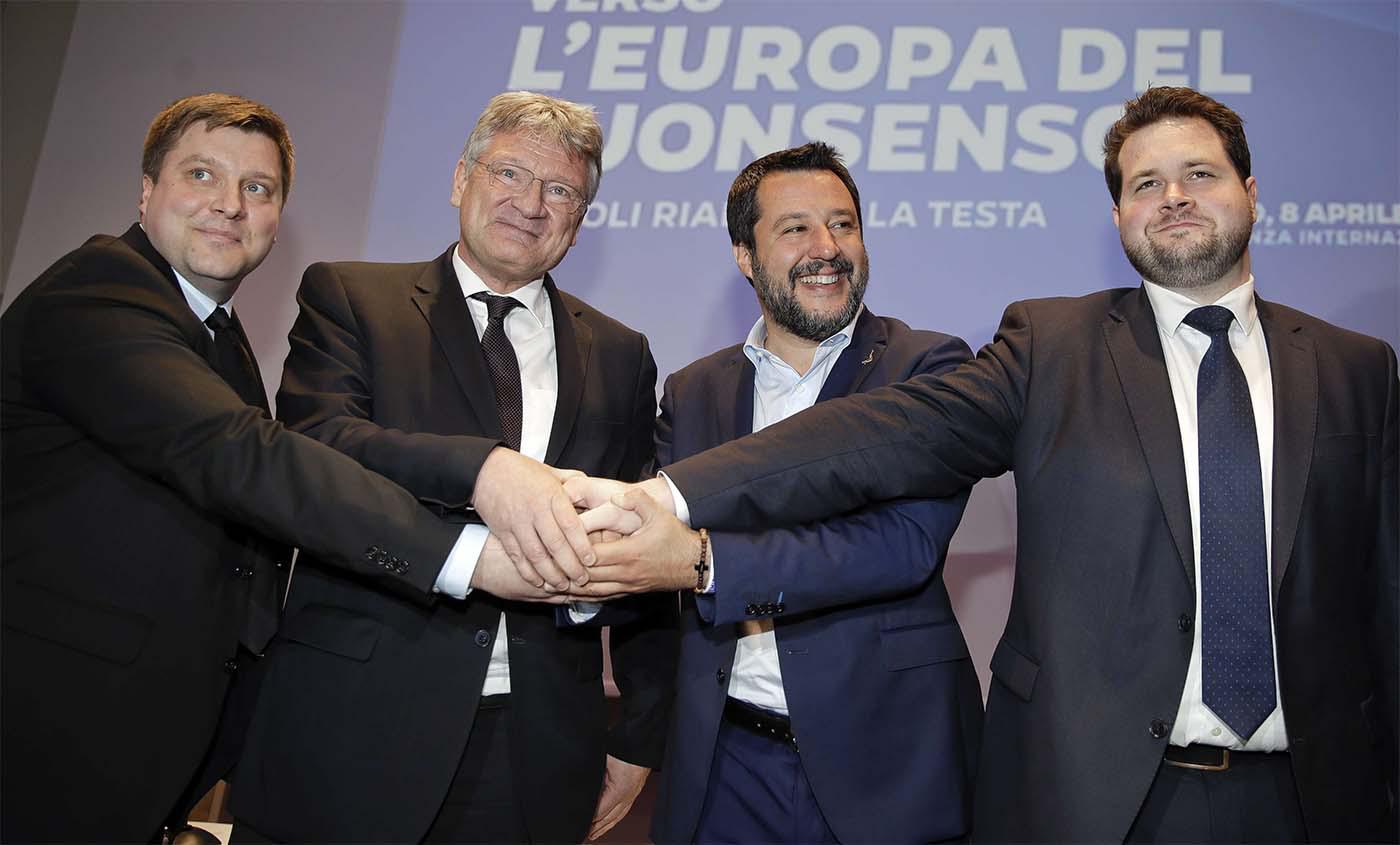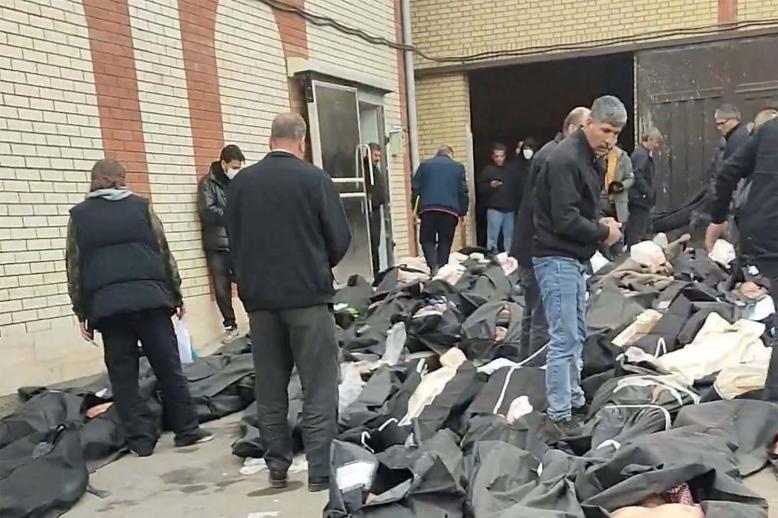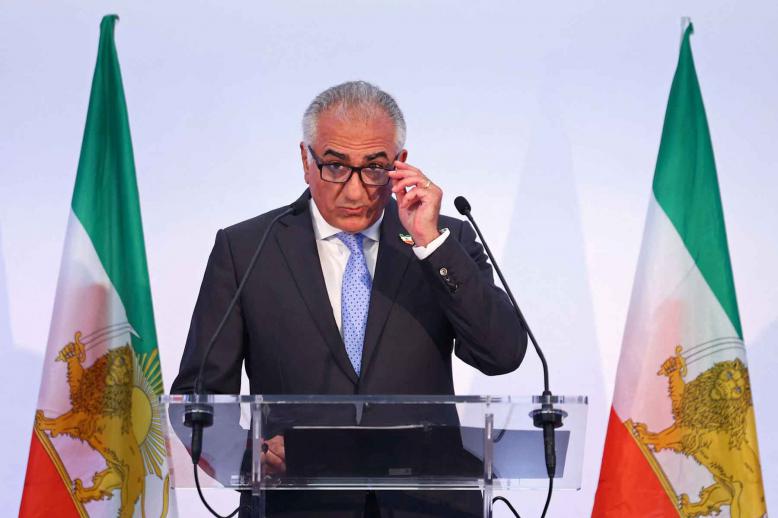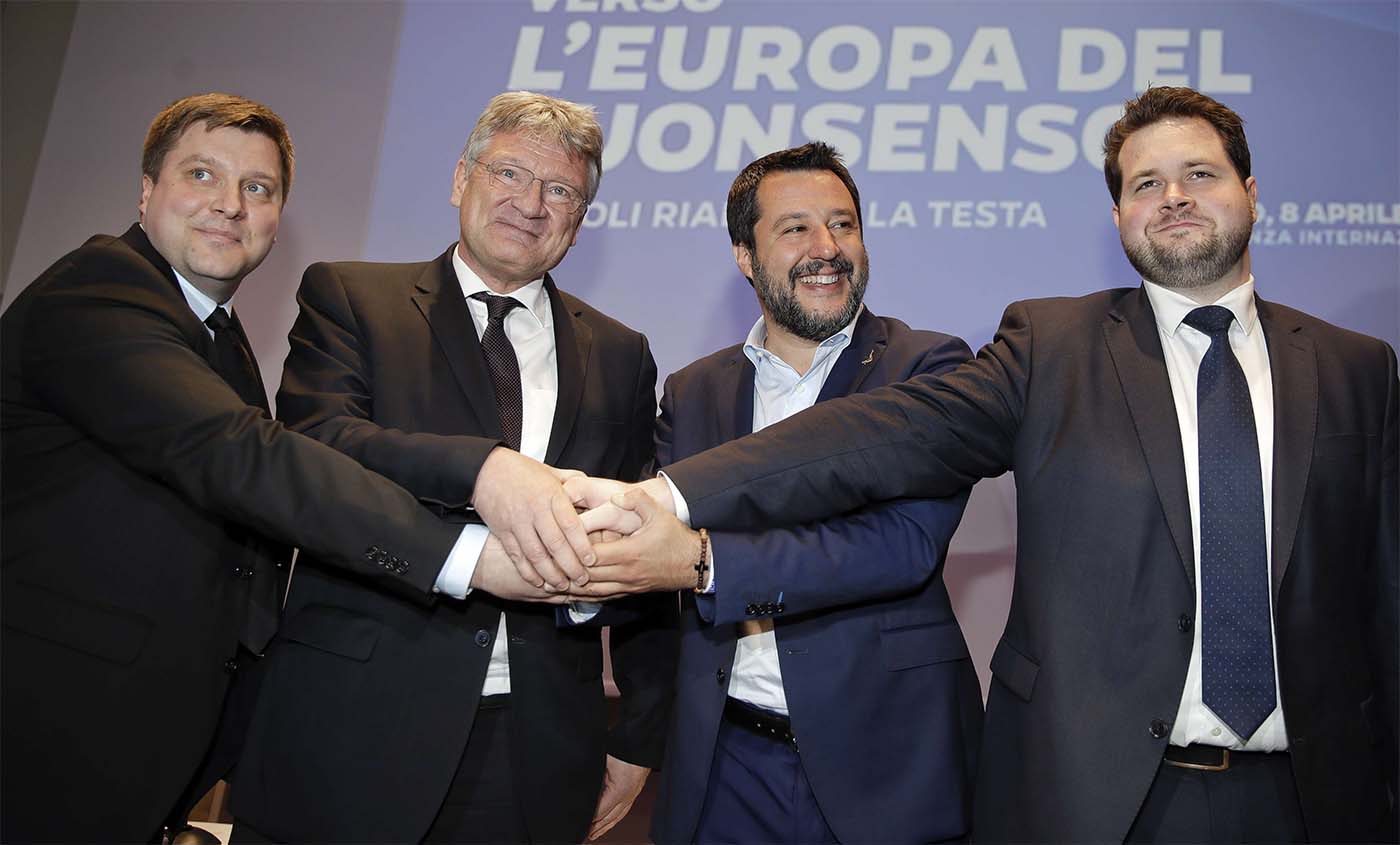Europe’s far right coordinates stands ahead of continent-wide election
LONDON — Fears are rising across Europe regarding an expected far-right populist wave at the European Parliament elections, scheduled for May 23-26, as far-right parties move to consolidate ties.
“For many Europeans, the European Union is a nightmare,” Italian Interior Minister Matteo Salvini said after meeting with leaders of several of Europe’s far-right parties in Milan, Italy.
Salvini, who heads Italy’s far-right League party known for its anti-immigration stance, on April 8 announced the formation of a pan-European alliance called “Towards a Europe of Common Sense.”
The League is a leading member of the Europe of Nations and Freedom (ENF) group in the European Parliament, which includes Marine Le Pen’s National Rally in France, the Freedom Party of Austria (FPO) and the Dutch Party for Freedom.
“The European dream is being threatened by the bureaucrats and bankers governing Europe. They have been governing Europe for too long. It should really be a government of people,” Salvini said, delivering an indication of the populist rhetoric that the new group is likely to use.
“Our goal is to finally be a governing force and a force for change,” he added.
The Milan meeting was attended by representatives of the far right from Germany and Denmark, including Alternative for Germany (AfD) chief candidate for European elections Joerg Meuthen.
Demonstrating the complex nature of European Parliament coalition-building, the AfD is not a member of the ENF but rather the Europe of Freedom and Direct Democracy group, which includes Salvini’s government coalition partners the populist Five Star Movement.
Meuthen earlier said that while an over-reaching “patriotic alliance” was unlikely in the European Parliament given diverging interests and clashing personalities, the important thing was for far-right parties to “work together because they can’t do anything as individual parties.”
Meuthen told Agence France-Presse that there was a clear trend in the favour of right-wing, anti-immigration parties. “I expect that conservative forces will be clearly strengthened in the elections and that social democratic forces… will be heavily weakened,” he said.
While Le Pen’s National Rally did not attend the Milan meeting, Salvini reassured supporters that Le Pen was backing the alliance and would attend a May 17 rally in Milan.
National Rally MEP Nicolas Bay, a co-chairman of ENF, said: “Matteo [Salvini] spoke in the name of those who form the ENF, which have mandated him to launch this appeal to a larger alliance.”
The FPO confirmed it would be joining Salvini’s European alliance, demonstrating the overlap between the ENF parliamentary bloc and Towards a Europe of Common Sense.
FPO Secretary-General Harald Vilimsky posted a declaration on Twitter confirming that the party would be joining the “common patriotic project” represented by the new coalition.
“Together with others, this alliance will establish a political group in the European Parliament after the elections with the aim to unite the patriotic and conservative forces in the European Parliament that are at the moment split over different groups,” he said.
“Together we will fight for a safer Europe with well-protected external borders, less immigration and stronger cooperation to tackle terrorism and Islamisation,” the statement added, giving a look into the group’s priorities.
Reports of European far-right parties looking to consolidate their views came as polls indicate that the two biggest groups in the European Parliament — the centre-right European People’s Party (EPP) and centre-left Socialists and Democrats (S&D) — could experience major losses in May.
Europe Elects, which provides poll aggregation and election analysis, said the EPP, which has 217 seats in the current parliament, is forecast to lose 37 seats and S&D, currently at 186 seats, could lose as many as 56 seats.
A combination of the ENF and Salvini’s alliance, whether working together or part of a broader coalition, could secure a strong influential position on the next European Parliament.
That possibility has caused increasing concern among European moderates. One Twitter user, commenting on Vilimsky’s announcement joining Salvini’s alliance, said: “It’s horrifying to see German, Austrian and Italian fascists uniting again. People are thinking again what was unthinkable, that we could see a return to repression, even war, again in Europe. Sinister forces are aligning.”
Mahmud el-Shafey is an Arab Weekly correspondent in London. You can follow him on twitter @mahmudelshafey
Copyright ©2019 The Arab Weekly







